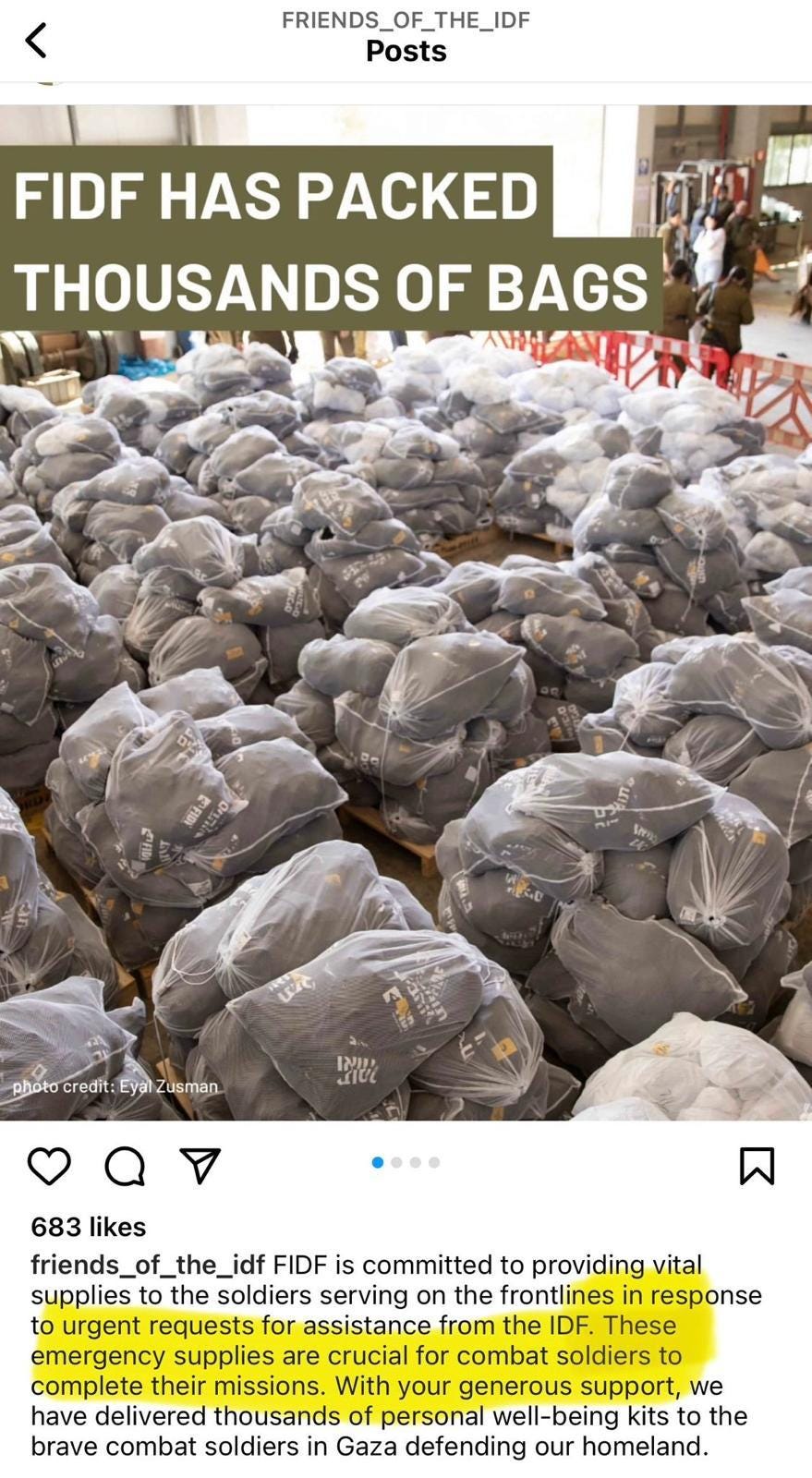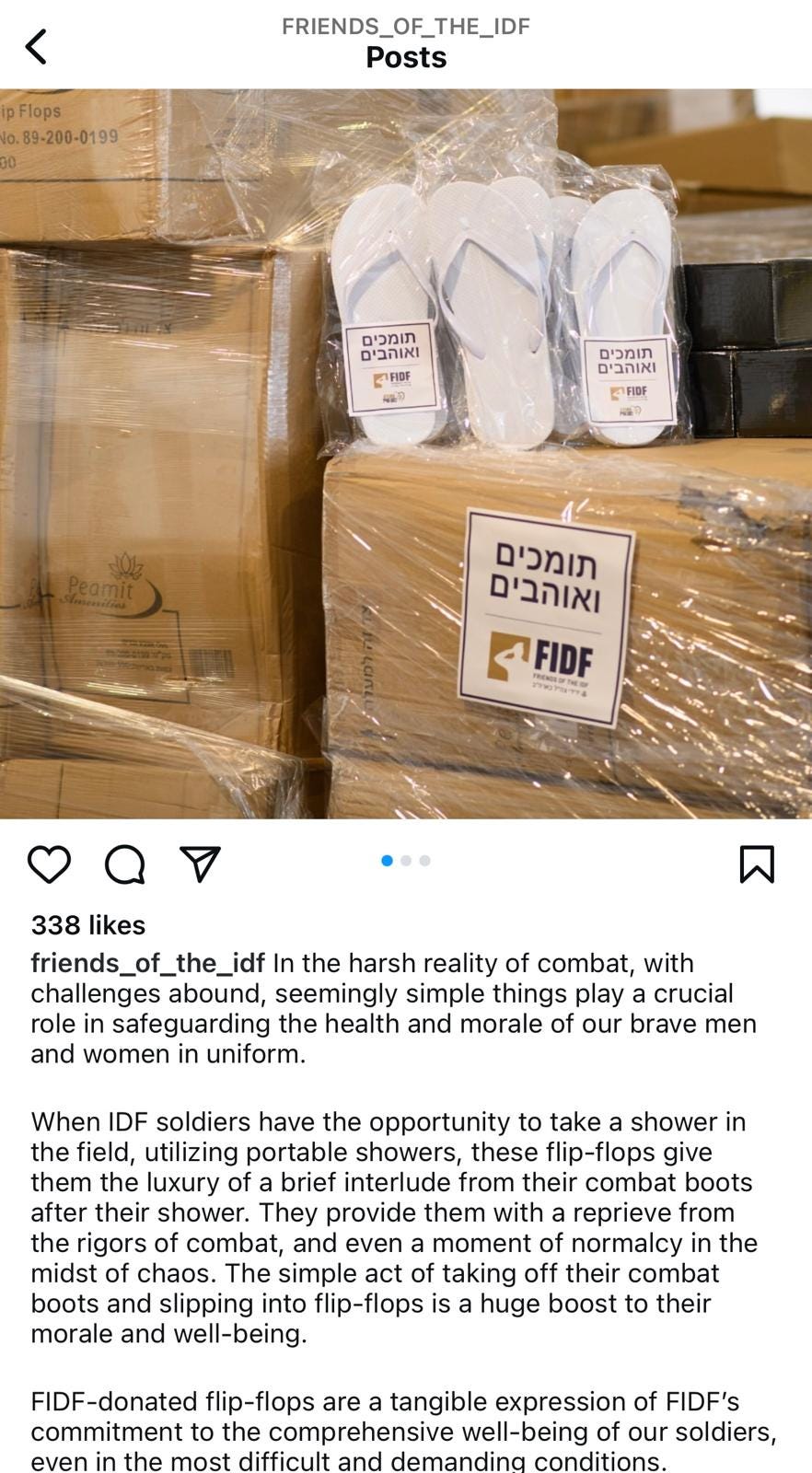Flip-Flops in Defense of Freedom: FIDF’s Morally Indefensible Response to October 7 and the Scandal That’s Shaking Donor Trust
How FIDF raised a fortune, hoarded it, and handed out flip-flops during Israel’s darkest hour.
The Friends of the Israel Defense Forces (FIDF) finds itself once again under intense scrutiny, its carefully cultivated image compromised by troubling revelations about financial practices, honesty, and integrity.
Philanthropic consultant Arnie Draiman initially raised pointed questions in early 2024 aimed at uncovering the truth behind FIDF's financial practices. Draiman highlighted that in 2023, FIDF collected an astounding $286 million yet directed only $113 million towards direct assistance, funneling the remaining $173 million into its substantial reserves, which ballooned to $347 million. He underscored that 18% of expenditures were devoted to overhead and administrative costs—levels widely criticized as indefensible.
Revisiting Draiman's findings in light of a recent YNET report has amplified concerns. FIDF’s partner in Israel, the Association for Israel Soldiers (AFIS), similarly faces criticism, holding reserves exceeding 200 million shekels, extensive real estate assets, and operating a profitable side business selling snacks and items marketed to soldiers' families. Notably, AFIS's fundraising expenses are subsidized by Israel’s Ministry of Defense, further eroding justification for FIDF's aggressive fundraising abroad. While high compensation itself isn't inherently problematic, FIDF’s substantial U.S. payroll—including 124 employees with 30 earning over $100,000 annually—raises significant concerns when paired with questionable allocations to non-essential expenditures.
The controversy intensified sharply following Hamas’ brutal attack on October 7, 2023. Haaretz reported that despite reserves of $174 million, FIDF launched an emergency fundraising effort raising over $50 million yet allocated only $31 million for immediate humanitarian relief. Chairman Morey Levovitz’s justification—that reserves were "earmarked" and untouchable without donor approval—was widely criticized as morally indefensible and bureaucratically obstructive during an urgent crisis.
Even more damning was the public promotion of trivial expenditures as critical emergency aid. FIDF's own marketing photos proudly displayed expenditures on clearly non-essential items: an astonishing $172,000 on flip-flops, along with substantial amounts on pillows, fleece blankets, and candy kits. These promotional materials underscore a glaring misalignment between FIDF’s urgent appeals and actual spending practices, intensifying public skepticism. In one particularly glaring example, FIDF claimed on social media that items provided, mere t-shirts, were "crucial for combat soldiers to complete their missions," further deepening questions about their sincerity and fiscal responsibility.
The recent YNET report further exposed internal dysfunction, highlighting a toxic culture characterized by centralized power, inflated reimbursements, and deliberate donor misrepresentation. Levovitz faced direct accusations of steering organizational business towards personal associates, particularly the travel agency Ortra, fueling widespread public outrage.
FIDF's ongoing lavish galas and inflated salaries amplify the perception of an organization disconnected from frontline realities and soldiers' genuine needs. Draiman's earlier queries underscore this stark contradiction: abundant resources spent frivolously while essential needs remain unmet.
FIDF now faces an urgent imperative to dramatically reform. Genuine transparency, significant reductions in overhead, responsible reallocation of reserves during crises, and a laser-focused commitment to essential humanitarian aid are critical for restoring donor trust and authentically serving Israel’s soldiers. Any further delay or deflection risks irreparable damage to the organization's reputation and the vital mission it claims to uphold.






